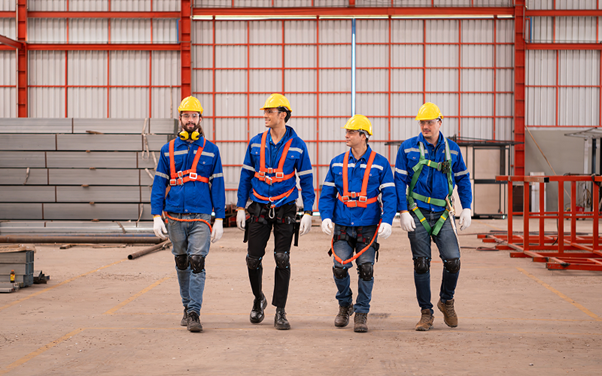When it comes to workplace safety, there are plenty of assumptions about PPE equipment suppliers that do not hold up in real-world practice. Some workers think a single piece of gear is enough, while others believe sourcing from any supplier makes little difference. In reality, how equipment is chosen, distributed, and worn affects not only compliance but also day-to-day safety. Let’s explore the common misconceptions about protective gear and where the equipment suppliers truly fit into the picture.
PPE Is Only for Hazardous Industries
One of the biggest myths is that PPE is only necessary for construction sites or chemical plants. In truth, protective gear is essential in a wide range of sectors, from healthcare to logistics. Even office staff handling electrical maintenance or site inspections may require specific gear. By limiting PPE to certain environments, companies underestimate potential risks. Suppliers offer a wide catalogue of equipment suited for different roles, which means organisations can scale protection according to need.
Any Supplier Will Do
Some businesses assume that choosing a supplier is a straightforward task, as long as the equipment looks functional. This is far from true. Reliable suppliers ensure their products meet safety standards and legal requirements. Without this assurance, workers may be using substandard gear that compromises protection. A trusted supplier builds long-term relationships with organisations and provides guidance on which equipment is appropriate. This is where a PPE distributor in Singapore becomes more than just a vendor. They act as partners who understand local regulations and can support companies in selecting compliant gear.
Safety Shoes Are All the Same
Safety shoes are often treated as interchangeable, yet the reality is different. A safety shoes supplier provides shoes designed for specific risks, from puncture-resistant soles for construction to anti-slip designs for kitchens. The wrong pair can cause discomfort, limit productivity, and even worsen hazards rather than prevent them. Understanding what type of shoe matches the work environment makes all the difference. Workers who use poorly fitted or unsuitable shoes are more likely to experience strain and fatigue, which can increase workplace accidents over time.
Once Issued, Gear Lasts Forever
There is also the assumption that once equipment is issued, it will serve indefinitely. PPE has a defined lifespan and needs regular inspection. Helmets lose impact resistance, gloves wear thin, and filters become clogged. A trustworthy PPE distributor in Singapore or supplier often provides replacement schedules and maintenance guidance that employers sometimes overlook. Keeping an updated record of equipment lifecycles prevents worn-out gear from putting workers at risk.
Compliance Equals Safety
Compliance with regulations is critical, but it does not guarantee complete protection. Some companies purchase PPE simply to satisfy audits rather than to actively safeguard staff. Workers might be issued helmets and vests, but not trained on proper use. Reliable PPE equipment suppliers do more than sell products; they help organisations understand how to maximise the value of gear through training materials and fit checks. True safety depends on both the product and the practices surrounding its use.
One-Size-Fits-All Works Fine
It is tempting to think a single glove size or helmet style will work for all staff. Yet differences in body size and job roles mean one-size-fits-all approaches often fail. Equipment that does not fit correctly reduces protection and comfort. Suppliers provide a range of sizes and styles for precisely this reason. From safety shoes to respirators, getting the right fit ensures staff actually wear the gear without resistance, which improves overall compliance and safety culture.
Buying Cheaply Saves Money
Cutting corners on protective equipment may appear to save on upfront costs, but the long-term effects can be expensive. Inferior products wear out faster, need more replacements, and can lead to accidents that cost far more in compensation and downtime. A reliable safety shoes supplier or distributor offers equipment that balances affordability with durability. The way organisations think about PPE has a direct impact on worker safety.
Myths about suppliers, distribution, and usage only lead to unnecessary risks.
By working with trusted PPE equipment suppliers, understanding the role of a PPE distributor, and choosing the right products from a shoes supplier, companies can create a safer, more effective workplace. The real key lies in viewing PPE as an ongoing commitment rather than a one-time purchase. Employers who choose quality gear often spend less overall while maintaining safer workplaces.
Contact Dou Yee to learn more about sourcing reliable PPE for your workplace needs.

